Science
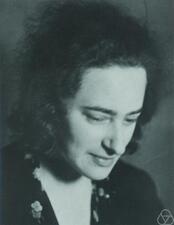
Olga Taussky-Todd
A self-proclaimed “torchbearer for matrix theory,” Olga Taussky-Todd made the previously little-known field essential for scientists and mathematicians.
Estera Tenenbaum
Dismissed from the Kaiser Wilhelm Institute in 1934 for being a Jew, a woman, and a foreigner, Estera Tenenbaum went on to become a distinguished cell and virus scientist. Over the course of her career she held research and teaching positions at Hebrew University and participated in groundbreaking research at the California Institute of Technology.
Hannah Thon
Hannah (Helena) Thon was a social worker, journalist and editor, a student of Israel’s ethnic communities, and one of the leading figures in the women’s voluntary social-welfare organizations during the Yishuv (pre-State) period in Israel.
Ethel Tobach
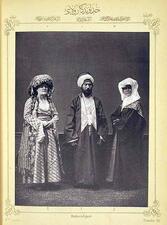
Turkey: Ottoman and Post Ottoman
The Jewish population of Turkey navigated far-reaching changes in the political, social, and geopolitical spheres in the late nineteenth and the early twentieth centuries, as the Ottoman Empire pursued reform and collapsed and the Turkish Republic that took its place imposed a process of “Turkification” on its residents. During this period, Jewish women partook in traditional customs relating to religion, family, and the home, while also accessing new opportunities in the public sphere through education and political engagement.
Rosa Zimmern Van Vort
Salome Gluecksohn Waelsch
Salome Gluecksohn Waelsch combined embryology and genetics to form a new discipline, developmental genetics, a science that investigates the genetic mechanisms of development. For over sixty years, Waelsch made fundamental discoveries in mammalian development and cancer research.
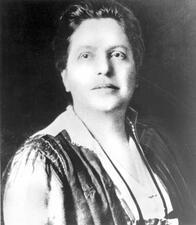
Lillian D. Wald
Guided by her vision of a unified humanity, Lillian D. Wald passionately dedicated herself to bettering the lives and working conditions of immigrants, women, and children. She founded the Henry Street Settlement in New York City and initiated America’s first public-school nursing program. A talented activist and administrator, Wald’s pathbreaking work continues to be memorialized.
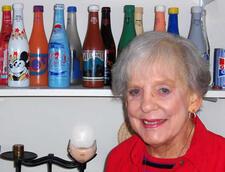
Mollie Wallick
Marie Pichel Levinson Warner
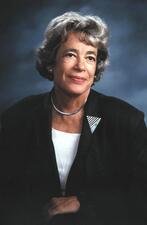
Elga Ruth Wasserman
Chemist Elga Wasserman – a recipient of a Ph.D. in organic chemistry from Harvard in 1949 and a J.D. from Yale in 1976 – is best known for overseeing the entrance of the first coeducational class at Yale College in 1969.
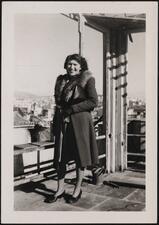
Gladys Davidson Weinberg
Gladys Davidson Weinberg’s pioneering archaeological work on ancient and medieval glass and its manufacture in the Mediterranean world sheds light on the trade and technology of preindustrial societies.
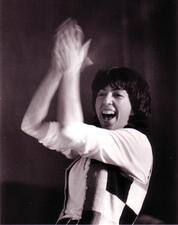
Naomi Weisstein
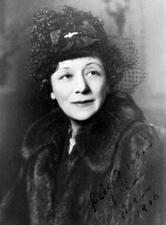
Vera Weizmann
A Zionist and a physician, Vera Weizmann was a founding member of the WIZO. She accompanied and assisted her husband Chaim, the president of the Zionist Federation of Britain and first president of Israel, as he negotiated the founding of a Jewish state.
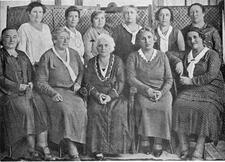
Rosa Welt-Straus
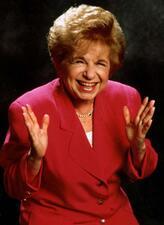
Ruth Westheimer
Ruth Westheimer, who lost her entire family in the Holocaust, served in the Haganah, and received her Ed.D. from Columbia University, was an unlikely candidate for the role of host of a cheerful talk show about sex. However, her celebration of human sexuality, derived from Orthodox Judaism, made her an influential and highly successful proponent of joyful, responsible sex from the 1980s into the third decade of the twenty-first century.
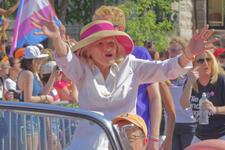
Edie Windsor
Before Edie Windsor became an LGBT activist, she was a computer programmer at IBM in the 1960s and a mentor to women in the field. When her joyous 44-year relationship with Thea Spyer ended with Thea’s death, Edie sued the federal government to recognize their marriage. She took her case all the way to the Supreme Court, winning recognition for the marriages of all same-sex couples in the U.S.
Charlotte Wolff
A pioneering German-Jewish lesbian and feminist physician, Charlotte Wolff became interested in sexology, psychotherapy, and chirology while working as a physician in Berlin’s working-class neighborhoods. Soon after the Nazis came to power she fled to France and then to England, where she began researching and writing books on chirology. In the 1960s she turned her research to homosexuality and published a landmark study on lesbianism.
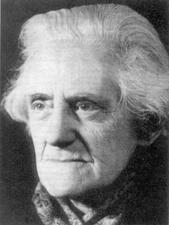
Nelly Wolffheim
Nelly Wolffheim spent her career developing and teaching a kindergarten curriculum based around Sigmund Freud’s psychoanalytic framework. She taught this curriculum, which encouraged children to express their sexual desires, to Jewish women teachers in Berlin. After escaping Germany for England in 1939, Wolffheim struggled to continue her research but began publishing her work again after the war.
Martha Wollstein
Responding to the public health crisis of the early twentieth century with a declaration that the current generation of women physicians had “entered societies and laboratories for the benefit of all,” Martha Wollstein had an exemplary career in pathology and the experimental study of childhood diseases.
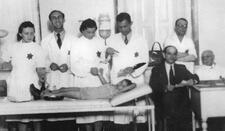
Women's Health in the Ghettos of Eastern Europe
Women in the ghettos of Eastern Europe often outnumbered men, but within ghetto populations, women generally had lower mortality rates than men, perhaps due to their ability to adapt to their surroundings and use of public health services. However, women suffered uniquely; many women did not menstruate, suffered from symptoms caused by hormone imbalances, and endured prohibitions against childbirth.
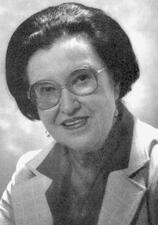
Rosalyn Yalow
Mayana Zatz
Mayana Zatz is one of the pioneers of human and medical genetics in Brazil. In 1981 she founded the Brazilian Muscular Dystrophy Association, to help the poorest population of patients. She has worked on the Zika congenital syndrome and on cancer and was very involved with the Brazilian Congress’s approval of a bill allowing human embryonic stem cell research.
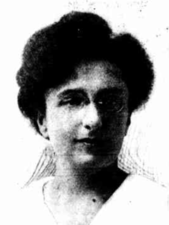
Zoe Benjamin
Zoe Benjamin was a twentieth-century Australian teacher who pioneered liberal ideas in early child education, child rearing, and child psychology. She wrote and lectured, both in person and over the radio, in depth on these topics. Her work gained such distinction that she was known overseas in England as well as Australia.
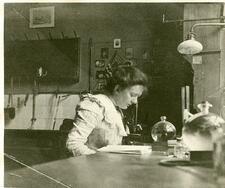
Margarete Zuelzer
Margarete Zuelzer’s life epitomizes both the successes and frustrations of women scientists in academia in the first half of the twentieth century. One of the first generation of women scientists in Germany and also one of the first to receive an appointment in a ministry of the Weimar Republic, she was forced to flee from Nazi Germany. Unable to find refuge, she was murdered in 1943.


